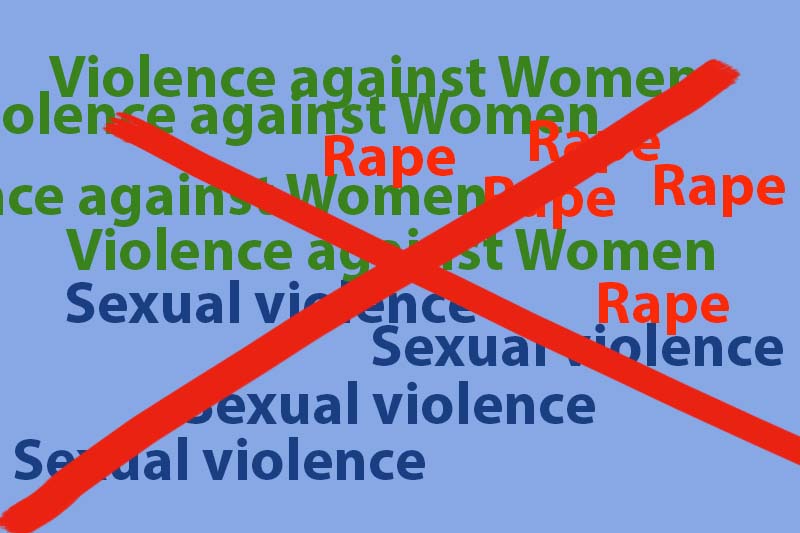

Data from Nepal Police show that the number of cases related to rape has increased significantly in 2019-20 to 2,144 cases of rape and 687 cases of attempted rape in comparison to the 1,480 reported cases of rape and 727 cases of attempted rape in 2017-18.
Likewise, the number of complaints of violence against women in the eight districts of Province 2 surged dramatically from 602 three years ago to 10,243 in the past year.
In the last fiscal year alone, police arrested 1,085 individuals and filed cases against 312 individuals in Kathmandu Valley for sexual harassment and other offenses in public places.
Is Nepal more unsafe now or is it just coming out now because of awareness?
“It is true that because of increased awareness, there is an increase in case reporting.”
“Previously, these things were not talked about and suppressed. The victim and rapist would come to a ‘compromise’ with the ‘blessings’ of the village seniors, says Psychologist Kripa Acharya working with Saathi.
Where is this all rooted?
Male dominant society? Power dimension? Our old belief? Not enough sex education? Culture?
Not enough guidance? Not enough education on psychology? Society? Government?
These are the popular aspects that people point to.
“The mindset of ‘I have a right over women’s body’ can be seen in not just violence and rape but our everyday life like ‘catcalling’,” says Acharya.
“The reason for increased violence and rape are deep-rooted in our culture in the form of patriarchy, domestic violence, stigma in mental health, traditional beliefs and practices,” says Clinical Psychologist Hashana Shrestha.
“Now, we have resources for our desire; porn but no guidance to handle that desire. No one is taught the technique to cope with our feelings, learn about other people’s boundaries, sex education,” she adds.
“Sex education plays a vital role in this topic,” says Acharya
Let’s have a look at sex education.
Sex education is high-quality teaching and learning about a broad variety of topics related to sex and sexuality, exploring values and beliefs about those topics, and gaining the skills that are needed to navigate relationships and manage one’s own sexual health.
Acharya adds, “Sex education also teaches us to cope with our feelings, respect each other’s boundaries and develop a relationship.”
“We don’t have enough sex education only but we lack knowledge about basic psychology too. We experience various forms of emotion right from birth so people should be taught to cope with emotions whether it be positive or negative. I feel schools should include psychology in their curriculum,” she further mentions.
Is there anything our government could do?
Everyone has a tendency to blame the government, but what can the government do?
“Our government has a separate budget for all sections. Why not on mental health? Why is this topic under the shadow?” questions Psychologist Kripa Acharya.
“The government can intervene from the school level by including topics of sex education, mental health, and coping skills so that children can learn and acquaint themselves with such issues. In some areas like in the Terai where domestic violence is reportedly high, the government should work in a systematic manner by focusing on the male population,” says Shrestha
She adds, “As normal people, there are so many things that can be done. Most importantly, we should stop blaming the survivor. Victim blaming is very high in our society. Rather than blaming a girl, we should support her by reminding her that she has not committed any mistake because in such cases the survivor develops a feeling of guilt and self-blaming.”
“As parents and guardians, we should teach our male child from childhood to accept failure, deal with rejection and provide a safe space to let out his emotions in such situations. We should teach them to respect girls, value their dignity and understand that ‘No’ means ‘NO’,” Shrestha mentions
What about men being abused?
There are also men being abused, which is an issue that was recently kept under wraps.
“It is true that not only girls but boys too are abused in different forms. But, yes data shows that it is mostly the females who are abuses. Rather than saying ‘man and abuse’ in individual form, I would say it is a culture. Giving importance to boys in comparison to girls from birth, prioritizing the needs of boys, fulfilling the demands of boys, stopping them from venting their emotions from childhood by saying ‘Boys don’t cry’, not teaching them how to handle failure and accepting anger from boys are some of the cultural practices that promote aggressive and violent behavior among boys/men”
Professor Rita Shrestha, of the central department of psychology at Tribhuvan University, says, “It’s not just one person’s responsibility.” She adds, “Every sector from media, parents, school and the government should carry out their responsibility by not restricting the media, providing the right knowledge, posting only right news, not suppressing kids’ mistakes but helping them learn.”
She continues things like ‘open discussion, site control, proper knowledge’ will help in reducing the number of such cases.
We talk about this time and again.
Is it enough talked about?